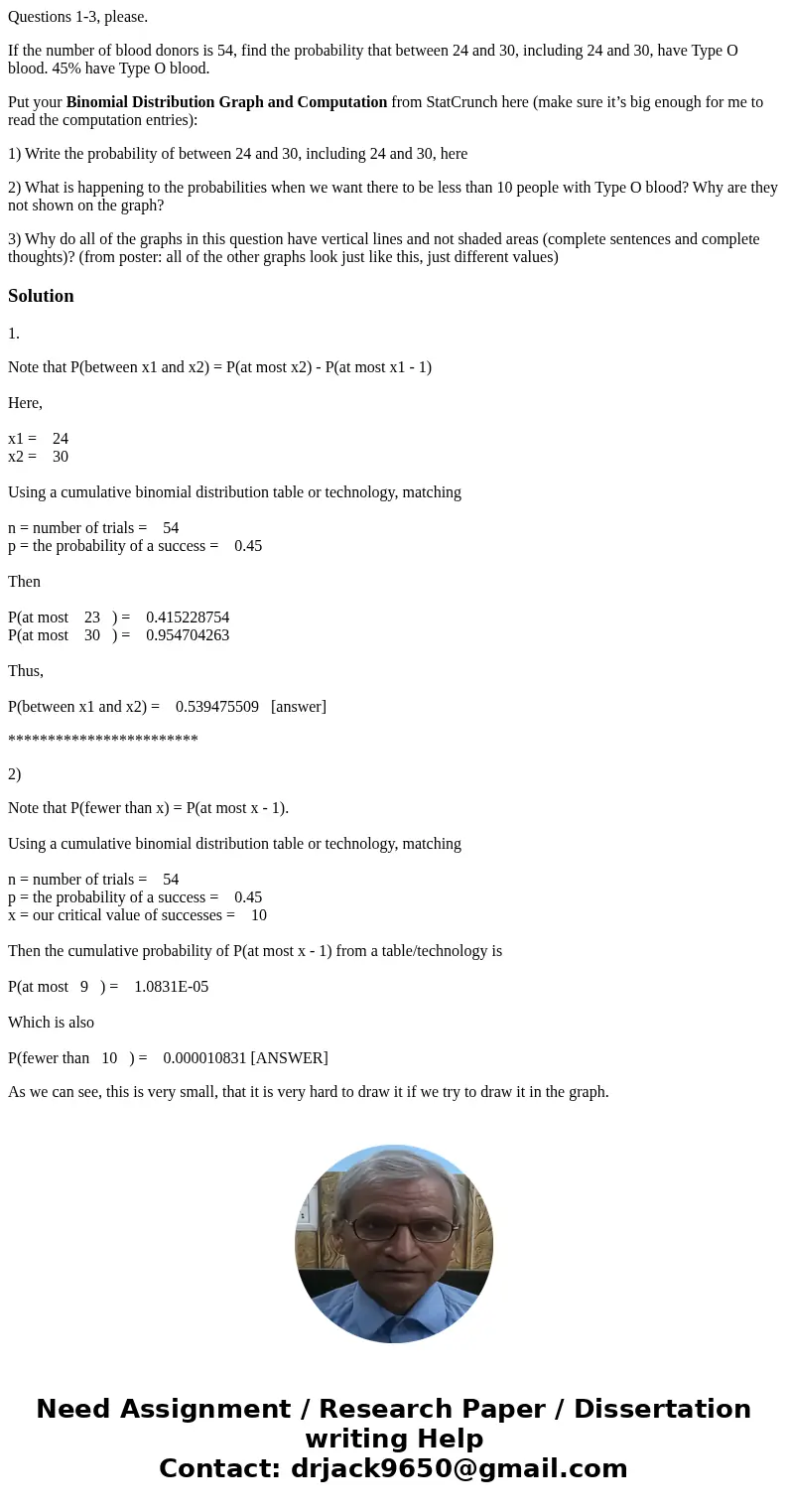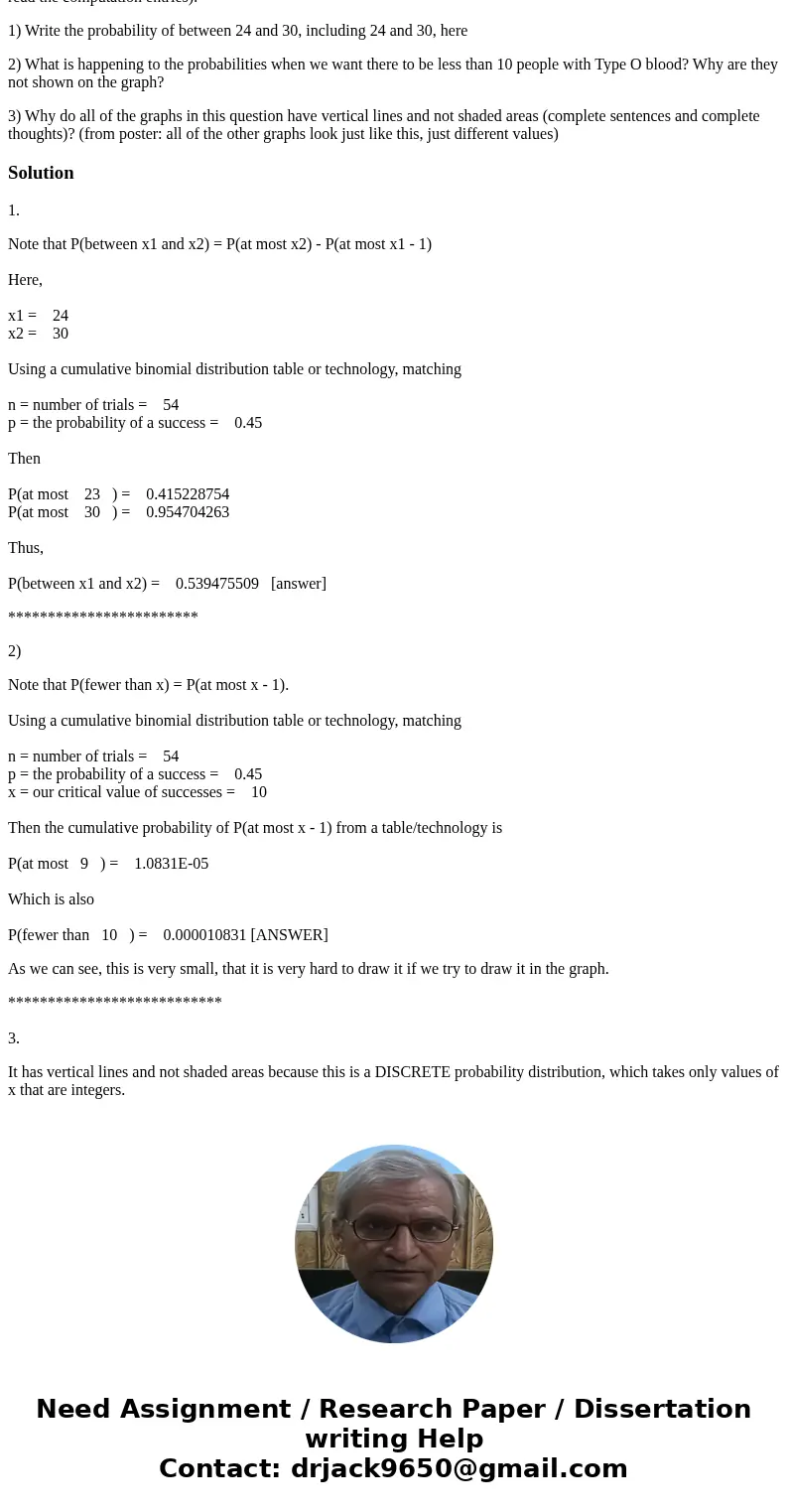Questions 13 please If the number of blood donors is 54 find
Questions 1-3, please.
If the number of blood donors is 54, find the probability that between 24 and 30, including 24 and 30, have Type O blood. 45% have Type O blood.
Put your Binomial Distribution Graph and Computation from StatCrunch here (make sure it’s big enough for me to read the computation entries):
1) Write the probability of between 24 and 30, including 24 and 30, here
2) What is happening to the probabilities when we want there to be less than 10 people with Type O blood? Why are they not shown on the graph?
3) Why do all of the graphs in this question have vertical lines and not shaded areas (complete sentences and complete thoughts)? (from poster: all of the other graphs look just like this, just different values)
Solution
1.
Note that P(between x1 and x2) = P(at most x2) - P(at most x1 - 1)
Here,
x1 = 24
x2 = 30
Using a cumulative binomial distribution table or technology, matching
n = number of trials = 54
p = the probability of a success = 0.45
Then
P(at most 23 ) = 0.415228754
P(at most 30 ) = 0.954704263
Thus,
P(between x1 and x2) = 0.539475509 [answer]
************************
2)
Note that P(fewer than x) = P(at most x - 1).
Using a cumulative binomial distribution table or technology, matching
n = number of trials = 54
p = the probability of a success = 0.45
x = our critical value of successes = 10
Then the cumulative probability of P(at most x - 1) from a table/technology is
P(at most 9 ) = 1.0831E-05
Which is also
P(fewer than 10 ) = 0.000010831 [ANSWER]
As we can see, this is very small, that it is very hard to draw it if we try to draw it in the graph.
***************************
3.
It has vertical lines and not shaded areas because this is a DISCRETE probability distribution, which takes only values of x that are integers.


 Homework Sourse
Homework Sourse